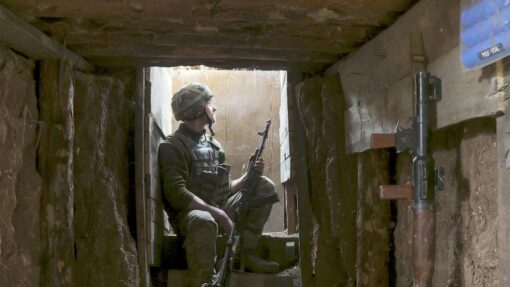Budget to look at power price pressure
Dominic Giannini and Tess Ikonomou |
Labor is standing by its federal election pledge to reduce power bills as it promises the budget will aim to reduce energy prices.
“We’ve got the war in Ukraine and not enough generation capacity in the Australian grid and problems with the distribution,” Assistant Treasurer Stephen Jones told Sky News on Monday.
“We’ve got to plan to deal with that. We’ll have more to say about that tomorrow night, but it’s about rewiring the nation.
“We’re still committed to our policy because we know that’s the only way to bring down prices over time.”
He said the government had to scramble to find room in the budget, to be delivered by Treasurer Jim Chalmers on Tuesday night, to pay for tens of billions of dollars of tax cuts.
“All the other Liberals will tell you they put tax cuts in place. Anyone can cut taxes, but what they can’t tell you … is how you pay for them.”
Finance Minister Katy Gallagher said the government had found $21 billion worth of savings and money to redirect to ensure the budget doesn’t add to rampant inflation.
Examples include the retrieval of $6.5b from infrastructure projects to better align the investment with construction market conditions.
A further $3.6b will come from slashing expenditure on external labour, advertising, travel and legal costs.
More than $2b will be shaved from various grants programs.
Finance Minister Katy Gallagher said funding some big infrastructure projects would be delayed beyond forward estimates, with some experiencing issues accessing materials and workforce.
“It’s not exclusively infrastructure, we are finding savings across government,” she told the ABC.
“We have gone to every single department and asked them to look at their programs to identify those that don’t need to be done any longer or don’t align with government priorities.”
She flagged “significant investment” to repair flood damage, and backed Emergency Management Minister Murray Watt’s flagging of Australia building a semi-professional disaster relief workforce.
Shadow treasurer Angus Taylor said Labor needed to use its budget to prove it had a plan to lower the cost of living.
“Cost of living pressures are going to intensify. Real wages are not going to improve in any material way,” he told Sky News.
Mr Taylor said Labor had been gifted the lowest unemployment rate in decades, economic growth of more than three per cent and an improving budget bottom line by the coalition.
He said a high-taxing, high-spending Labor budget would only make the Reserve Bank’s job harder and Dr Chalmers’ challenge would be a test of his willingness to put Australians first.
“Budgets are statements of a government’s priorities and … this new Labor government’s true intentions will be exposed,” he said.
Mr Taylor urged Dr Chalmers to put downward pressure on inflation and interest rates without increasing taxes.
Opposition finance spokeswoman Jane Hume said the budget needed to address inflation and not “deteriorate” the bottom line.
“What we want to see is that the budget tomorrow builds on the strong position the government inherited from the coalition,” Senator Hume told ABC Radio.
Senator Hume said the $2.2b set aside for Victoria’s massive Suburban Rail Loop transport project as a “political” decision, with the Andrews Labor government facing a state election next month.
AAP


